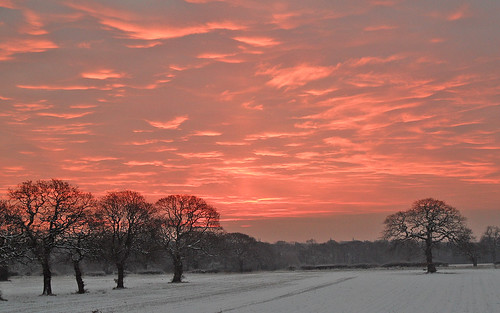
This last week I've been exasperated in much the same way by both Claire Tomalin and Christopher Hitchens - the former this morning on Start the Week, the latter on The Today Programme last week as part of a tribute following his death.
The discussion this morning was sparked by Canon Giles Fraser (who as you may remember had to resign because of his support for the demonstrators outside St Paul's) talking about Christian morality and what it has to say about excessive wealth. Tomalin (author of the recent biography of Dickens) piped up with that dreary old saw about how such morals are 'impossible' because human nature is set by biology and evolution which favours competition and aggression. It is natural and therefore right, she says, to have children and to do anything to help them get ahead.
So we shouldn't even try to do good? Is that what she's saying? We shouldn't even bother. Because it's impossible to overturn this fact of evolution and human biology, morality is impossible. Give up. Forget it.
Hitchens' point was similar. He was talking about his long-running arguments with his brother Peter. Peter was described as coming from a utopian left-wing background, which Christopher took to have been utterly discredited. There's no point, he concluded, in trying to change the world because the world is not perfectible. Utopia is impossible.
So does that mean we shouldn't do anything to improve matters? No regulations, no laws, no intervening to relieve the suffering and injustice? No, because it'll never be perfect. Best to give up. It's how the world is. Life's not fair. Grow up.
My first inclination is to lunge at the patronising self-satisfied common-sense that I suspect underlies both their views. I don't suppose they had or have much to worry about in life and any intervention by do-gooder bleeding-heart lefties is only likely to disrupt their comfortable life-styles, if only in a small way, but I don't know either of them personally and I shouldn't be so quick to judge.
My second response is to wonder at how such weak and sloppy thinking passes as learning or journalism on a forum as generally serious and thoughtful as Radio 4.
The point of morality, or idealism in the second case, is not, as they seem to imagine, to set up Heaven on Earth. This would be, as Hitchens rightly says, a discredited philosophy. Did the Soviets or the Maoists ever really believe in it? Nobody really thinks that way now except the radical Free-Marketeers ('If only we could get rid of the regulation' they say, 'the government, the taxes... With currently undreamed-of technological advances there would be growth and development and prosperity for all. There is no alternative. It's the end of history...')
No - the point of idealism and morality is not to somehow build an ideal world where nothing horrible ever happens. There is no point at which we win and everything is lovely. There will always be greed and brutality and cynicism. Of course there will. But we don't fight these things because we think one day we will beat them. The fight is on-going. It never ends. We keep at it because we fear that if we don't it will get even worse.
But surely, you say, it's all a matter of opinion. Morality is all about personal interests when it comes down to it. Ok, maybe the world heating up and the oceans flooding most of the cities and cultivable land looks bad but balance it against all these people who are forced to live in rented accommodation or can't afford new trainers for their children? Don't they need jobs fracking shale and clearing forests or what have you? It's all relative. In fact surely these leftie do-gooders are just another kind of totalitarianism - imposing their moral choices on the rest of us?
Listening to the issues that get into news, deciding what should be done about the financial crisis or climate change can look like it's anyone's guess but it's different if we're talking about, for example, something like child abuse. Child abuse might even be 'natural' in an evolutionary sense but nearly everyone is against it. It's not 'all relative'. What's more, presumably there will always be child abuse but the idea that we should therefore just let it happen is unthinkable.
So what is the difference? On the one hand we have a child down the street with an appalling home life because her father can't control his temper and on the other a child dying of entirely preventable disease in Africa because other people are hogging all the resources. Both happen because of human action (or negligence). One is more complex than the other (in the sense that in the second case there's no one person you can easily lay the blame on) but both are caused by decisions we humans make, and cannot be excused as 'just the way the world is'. Perhaps I suffer from an excess of empathy but they don't actually seem very different to me at all. Could it be that in fact Hitchens' and Tomalin's view of the futility of morality and idealism is just that it's all a bit too complicated? And isn't that actually a bit weak when it comes down to it?
My third response is just a sadness that so many people do seem to agree with them, if only by default. This lazy 'realism' is published and broadcast which gives it a kind of authority, and it quickly comes to seem like there's nothing to be done.
So although I'm far from Christian myself and have no simple set of commandments to offer, can my seasonal appeal to anyone who happens to read this be that we not give up on doing good for good's sake, but at least keep on thinking about it, and discussing it, and to trying to do better than our worst?
Happy Midwinter

